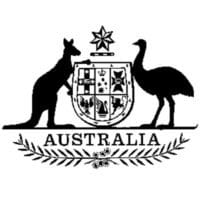An Australian parliamentary committee has held a public hearing at which it heard evidence from representatives of leading Australian banks, payment services providers and other financial bodies on regulatory issues including whether companies such as Apple should be mandated to allow third-party payment apps access to a smartphone’s NFC chip.

The issue was brought to the hearing on possible regulatory reform after a number of written submissions made to the Parliamentary Joint Committee on Corporations and Financial Services’ ongoing mobile payment and digital wallet financial services inquiry “raised concerns with Apple restricting direct access to the NFC chip in its mobile devices, potentially stifling innovation and increasing transaction costs for mobile payments”.
“These submissions argue that this practice has triggered regulatory intervention and antitrust investigations in some international jurisdictions, including Germany, the Netherlands, the UK and the EU,” the committee said in a written request sent to Apple before the hearing.
“While Apple’s own submission points out that banking apps and digital wallet providers in Australia are able to initiate NFC payments on iOS devices, these transactions must still be routed through the Apple Wallet and the Apple Pay platform, thereby potentially incurring additional costs for merchants and card issuers.
“This practice is different from Google’s approach with Android devices, on which third parties have direct access to the NFC chip.”
Restriction concerns
At the public hearing itself, the committee heard evidence from witnesses who reiterated these concerns about whether Apple’s restriction of access to the NFC chip in the iPhone would limit competition and innovation in the digital payments market.
“If there is an actual or possible restriction on being able to access devices, which are critical to the payments infrastructure, that would impede competition, and obviously that is not something that we would want to see. That would have a direct impact on our market and also on customers’ access to their financial services and products,” said Diane Tate of the Australian Finance Industry Alliance.
“We would say the main point here, to ensure there is open competition and innovation in financial products and services, is that financial providers, card issuers or buy now, pay later providers, for example, need to be able to access the technology that is currently within the device, which is the iPhone.”
Google’s Diana Layfield also confirmed that the company had “found that by opening access to the NFC chip we have seen more innovation on the Android platform and we’ve seen more competition between payments apps. And you see that in terms of the plurality of different payments apps that are available within Australia built on Android.”
Apple’s evidence
Apple itself did not attend the public hearing but submitted written evidence beforehand in which the company asserts that it does provide “banks with access to NFC functionality on Apple devices” and that Apple Pay’s technical architecture “is available to all banks in Australia on fair and non-discriminatory terms”.
“Innovation is supported as third party apps can directly initiate contactless payments without having to pass sole control of the NFC architecture to a single bank app. Banks can also leverage Apple’s APIs to make their iOS apps fully integrated with the payment experience and create differentiating experiences for their customers,” Apple adds.
The Parliamentary Joint Committee will now consider the arguments presented by all parties as part of its broader investigation of possible changes to the country’s regulatory framework for digital payments.
Participants in the public hearing included representatives of Reserve Bank of Australia, Australian Payments Network, Australian Finance Industry Association, Eftpos, Commonwealth Bank of Australia, Australian Competition and Consumer Commission, CPA Australia, FinTech Australia, Australian Securities and Investments Commission and a panel of academics.
Written submissions and responses to the Parliamentary Joint Committee, as well as transcripts from the public hearing, can be accessed via the inquiry website here.
A group of Australian banks began seeking stronger negotiating powers with Apple over accessing the NFC technology in its devices in July 2016, but their application was turned down by the Australian Competition and Consumer Commission in April 2017.
Next: Visit the NFCW Expo to find new suppliers and solutions